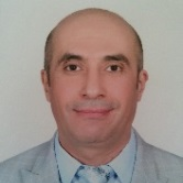International Journal of Intelligent Systems and Applications (IJISA)
IJISA Vol. 11, No. 6, 8 Jun. 2019
Cover page and Table of Contents: PDF (size: 738KB)
Artificial Intelligent Nonlinear Auto-Regressive External Input Neural Network Modeling, Design and Control of a Sea Wave Electro-Mechanical Power Generating System
Full Text (PDF, 738KB), PP.1-12
Views: 0 Downloads: 0
Author(s)
Index Terms
Artificial intelligence, neural networks (NN) nonlinear auto-regressive external input neural network (NARX-NN), wave power, sea wave electric power generator
Abstract
Utilization of the sustainable and renewable sea wave energy has recently received special attention by the virtue of being a free, clean and zero-carbon footprint power source. This paper presents a novel approach to model, design, analyze and control a sea wave electric power generating system using an artificial intelligent nonlinear auto regressive with external input neural networks (NARX-NN). Modeling design, and analysis of an electro-mechanical power-generating system using linear permanent magnet generator attached to a dual spring-mass-damper platforms is introduced. The purpose of this proposed generator is to convert sea and ocean wave kinetic energy into a useful electrical power generated as a result of the linear motion core through an electromagnetic stator. One of the direct applications of the sea wave generator is to install one or more units on shipboard to contribute to its power utility needs whether it is moving or floating. The dynamical stability and compensator control of the spring-mass damper generator platform is analyzed along with its associated electric power. Faraday’s law based results show that the output induced voltage ranges from -60 to 60 volts (120 volts p-p). Moreover, artificial intelligent nonlinear auto-regressive neural networks are used to train, validate, and test the sea wave electric generator output. Two-layer NN are used to train the dynamical input-output relationship of the proposed system using one hidden layer that contains of 10 neurons. Two delays are used, one for motion input and one for voltage output. The NARX-NN training demonstrates that the network is being trained efficiently and tracks the actual sea wave electric generator output with a very low mean-square-error performance response without the need to measure the variables.
Cite This Paper
Murad Al Shibli, Pascual Marques, "Artificial Intelligent Nonlinear Auto-Regressive External Input Neural Network Modeling, Design and Control of a Sea Wave Electro-Mechanical Power Generating System", International Journal of Intelligent Systems and Applications(IJISA), Vol.11, No.6, pp.1-12, 2019. DOI:10.5815/ijisa.2019.06.01
Reference
[1]H. Polinder, M.A. Mueller, M. Scuotto and M. Goden de Sousa Prado, “Linear generator systems for wave energy conversion,” Proceedings of the 7th European Wave and Tidal Energy Conference, Porto, Portugal, 2007.
[2]Oscar Danielsson, Design of a Linear Generator for Wave Energy Plant,” Master Thesis, Uppsala University, Sweden, Jan. 2003.
[3]Ivanova, I.A. Agren, O. Bernhoff, H. Leijon, M.,” Simulation of cogging in a 100 kW permanent magnet octagonal linear generator for ocean wave conversion,” International Symposium on Underwater Technology, Taipei, 20-23, April 2004.
[4]Håvard Eidsmoen, “Simulation of a Slack-Moored Heaving-Buoy Wave Energy Convertor with Phase Control,” Report at Division of Physics, Norwegian University of Science and Technology, N-7034 Trondheim, Norway, May 1996.
[5]K Budal, et. al., “The Norwegian Wave Power Buoy Project,” The 2nd Symposium on Wave Energy Utilization, Trondheim, Norway, 1982.
[6]J. Falnes and P. M. Lillebekken, “Budal's latching-controlled-buoy type wave-power plant,” 5th European Wave Energy Conference, Norway, 28-10-2003.
[7]O.I. Okoro, M.U. Agu, and E. Chinkuni, “Basic Principles and Functions of Electrical Machines,” The Pacific Journal of Science and Technology, Vol. 7. Number 1, May 2006.
[8]Eugen Rusu and Florin Onea, A review of the technologies for wave energy Extraction, Clean Energy Journal, Vol. 2, No. 1, 10–19, 2018.
[9]The International Renewable Energy Agency (IRENA), Wave Energy Technology Brief, IRENA Ocean Energy Technology Brief 4, June 2014.
[10]Simone Giorgi, Linear and nonlinear parametric hydrodynamic models for wave energy converters identified from recorded data, Ph.D. thesis, national University of Ireland Maynooth, July 2017.
[11]Modesto Amundarain, Mikel Alberdi, Aitor J. Garrido, Member, and Izaskun Garrido, Modeling and Simulation of Wave Energy Generation Plants: Output Power Control, IEEE Trans. on Industrial Electronics, Vol. 58, No. 1, Jan. 2011.
[12]Peter Meisen and Alexandre Loiseau, Ocean Energy Technologies for Renewable Energy Generation, Global Energy Network Institute (GENI), 2009.
[13]W. B. Wan Nik, A. M. Muzathik, K. B. Samo and M. Z. Ibrahim, A Review of Ocean Wave Power Extraction; the primary interface, International Journal of Fluid Machinery and Systems Vol. 2, No. 2, April-June 2009.
[14]Sujata Eresimi and Mallikarjuna G D, A Study on Electricity Generation in India from Wave Energy and its Future Scope, Journal of Information, Knowledge and Research in Electrical Engineering, 2016.
[15]Jingxin Shi, Detang Li, Date Li, Design and experimental research of jack-up wave energy power generation device, Advances in Mechanical Engineering Journal, 1-6, 2015.
[16]Ricardo Gobato, Alekssander Gobato, Desire Francine Gobato Fedrigo, Study Pelamis system to capture energy of ocean wave, Physics, Popular Physics, arXiv, 2015.
[17]Md. Mahbubur Rahman, Nirupom Paul, Md. Saiful Islam Md.Safi Rashed & Shahrior Ahmed, Power Generation from Sea Wave: An Approach to Create Renewable Energy, Global Journal of Researches in Engineering General Engineering Volume 13 Issue 1 Version 1.0 Year 2013.
[18]Erik Lejerskog, Cecilia Bostr€om, Ling Hai, Rafael Waters, Mats Leijon, Experimental results on power absorption from a wave energy converter at the Lysekil wave energy research site, Renewable Energy Journal, 77, Elsevier, 2015.
[19]S. Zahraee, M. Assadi, S. Rahman, Application of AI Methods for Hybrid Energy System Optimization, Renewable & Sust. Energy Reviews, 66, 617–630, 2017.
[20]Sunil Kr. Jha, Jasmin Bilalovic, Anju Jha, Nilesh Patel, Han Zhang, Renewable energy: Present research and future scope of Artificial Intelligence, Renewable and Sustainable Energy Reviews 77, 297–317, 2017.
[21]Eric M. Braun, Frank K. Lu, Magomet S. Sagov, Donald R. Wilson, and Peter Grubyi, “Proof-of-Principle Detonation Driven, Linear Electric Generator Facility,” 46th AIAA/ASME/SAE/ASEE Joint Propulsion Conference & Exhibit, Nashville, TN, 25 - 28 July 2010.
[22]Arshit Ambalia1, Jay Dolar, Mehul Koladiya, Shahnawaz Ansari, Prof. Zaid Ansari, Generation of Electricity from Ocean Waves, International Research Journal of Engineering and Technology (IRJET), Volume 03, Issue: 04, Apr-2016.
[23]Eugen Rusu, Evaluation of the Wave Energy Conversion Efficiency in Various Coastal Environments, Energies Journal, 7, 4002-4018, 2014.
[24]Hui Chai, Wanchun Guan, Xiaozheng Wan, Xuanqun Li, Qiang Zhao, Shixuan Liu, A Wave Power Device with Pendulum Based on Ocean Monitoring Buoy, ESMA 2017, IOP Conf. Series: Earth and Environmental Science, 2018.
[25]Khaled M. Khader, Power Generation from Sea Waves Using Experimental Prototype of Wells Turbineor Suggested Special Rotating Mechanism, International Journal of Mining, Metallurgy & Mechanical Engineering (IJMMME) Volume 3, Issue 3, 2015.
[26]Omar Farrok,1,2 Md. Rabiul Islam,2 and Md. Rafiqul Islam Sheikh, Analysis of the Oceanic Wave Dynamics for Generation of Electrical Energy Using a Linear Generator, Journal of Energy, Hindawi Publishing Corporation, Volume 2016, Article ID 3437027, 14 pages, 2016.
[27]S. Phaiboon and K. Jailearnmee, Fuzzy Electric Generation Modeling from Sea Wave Energy in Gulf of Thailand, International Conference of Electrical, Automation and Mechanical Engineering (EAME 2015), Thailand, 2016.
[28]Simone Giorgi, Josh Davidson, and John V. Ringwood, Identification of Wave Energy Device Models From Numerical Wave Tank Data—Part 2: Data-Based Model Determination, IEEE Trans. on Sustainable Energy, 2016.
[29]Alice Gillespie , Wave-by-wave Forecasting of Sea Surface Elevation for WEC Applications Utilizing NARX NN, Master Thesis, Oregon State University, USA, 2015.
[30]Doyle C, Lee Y, Haroutunian M, Trodden DG. Wave Modelling and Forecasting with Artificial Neural Networks. In: 5th International Conference on Advanced Model Measurement Technology for the Maritime Industry (AMT’17), 2017.
[31]Ruchi Shrivastava, Dr. Krishna Teerth Chaturvedi, Artificial Intelligence in Wave Height and Energy Prediction: A Comprehensive Review, International Journal of Advanced Research in Electrical, Electronics and Instrumentation Engineering, Vol. 7, Issue 5, May 2018.
[32]M.E. McCormick, “Wind-Wave Power Available to a Wave Energy Converter Array,” Ocean Engineering, Volume 5, Issue 2, Pages 67-74, April 1978.
[33]T. W. Thorpe, A Brief Review of Wave Energy, A report produced for The UK Department of Trade and Industry, May 1999.
[34]R. Krishnan, ‘Electric Motor & Drives: Modeling, Analysis and Control’, Prentice Hall of India, 2001.
[35]Murad Al Shibli, Artificial Intelligent On Shipboard Sea Wave Electric Power Generator, EFS ID: 33874602, Application Number 62739368, USPTO Patent, USA, 2018.
[36]Murad Al Shibli and Bobby Mathew, Artificial Intelligent Machine Learning and Big Data Mining of Desert Geothermal Heat Pump: Analysis, Design and Control, I.J. Intelligent Systems and Applications, 4, 1-13, 2019.

